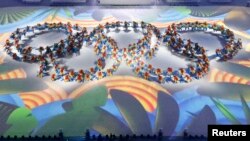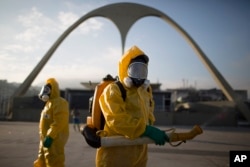A few months after the closing ceremony in Rio de Janeiro, IOC officials have a new tagline for South America's first Olympics: “The most perfect imperfect games.”
The International Olympic Committee held a news conference Tuesday to accentuate the positives of the Rio Games, which were held amid Brazil's political and economic crisis and experienced problems with empty seats, budget cuts, green water and other organizational issues.
“The games worked,” said Christophe Dubi, the IOC's executive director of the Olympic Games. “Were they perfect? No. The organizers faced immense difficulties. But, in the end, you have to take your hat off. It's extraordinary what they have delivered.”
The IOC has been going out of its way to publicly defend the Rio Games, seeking to blunt any lasting criticism and encourage potential future host cities at a time when many have been turning away because of concerns over high costs.
“As you remember in the lead-up to the games, we are all going to die of Zika or poisoned water or we were all going to be mugged in the streets,” IOC spokesman Mark Adams said. “As it turns out we find out that the games were the most universal, the most consumed ever.”
“Were they perfect games?” he added. “No. Someone described them as the most perfect imperfect games, which I think is actually quite a good characterization. There were problems, but what is fantastic is the way those problems were overcome.”
The IOC released a stream of facts and figures to showcase the success of the games, including global broadcast figures, record number of national Olympic committees, the first ever refugee team and performances by stars such as Usain Bolt, Michael Phelps and Mo Farah.
Dubi insisted the Olympic venues would all have long-term use and that the city had been transformed with a new transport system and other infrastructure improvements.
Dubi said the organizing committee's final operational budget — the cost of running the games, not the construction or infrastructure spending — would be announced in the next few weeks and would come in close to the original $2.9 billion figure.
“We had glitches,” Dubi said. “But when everyone comes back with a big smile, you know the games have been a success.”





